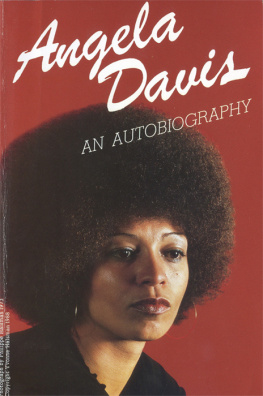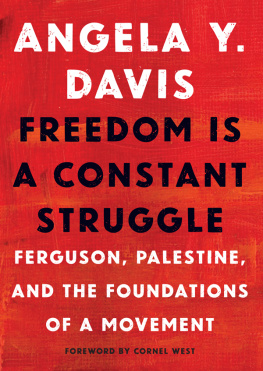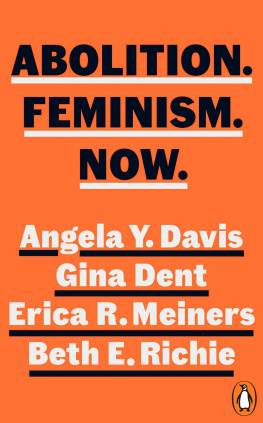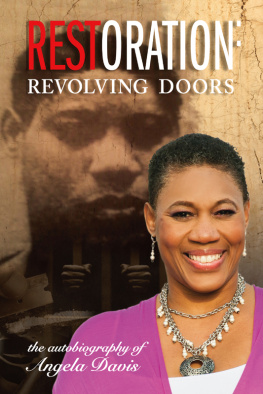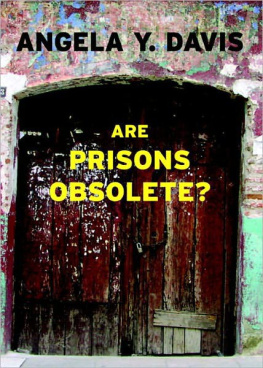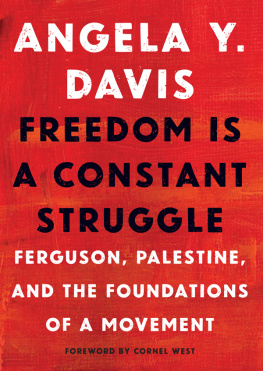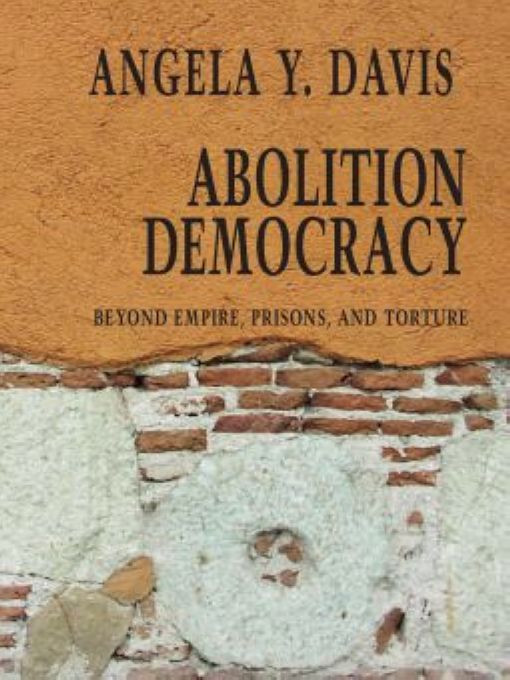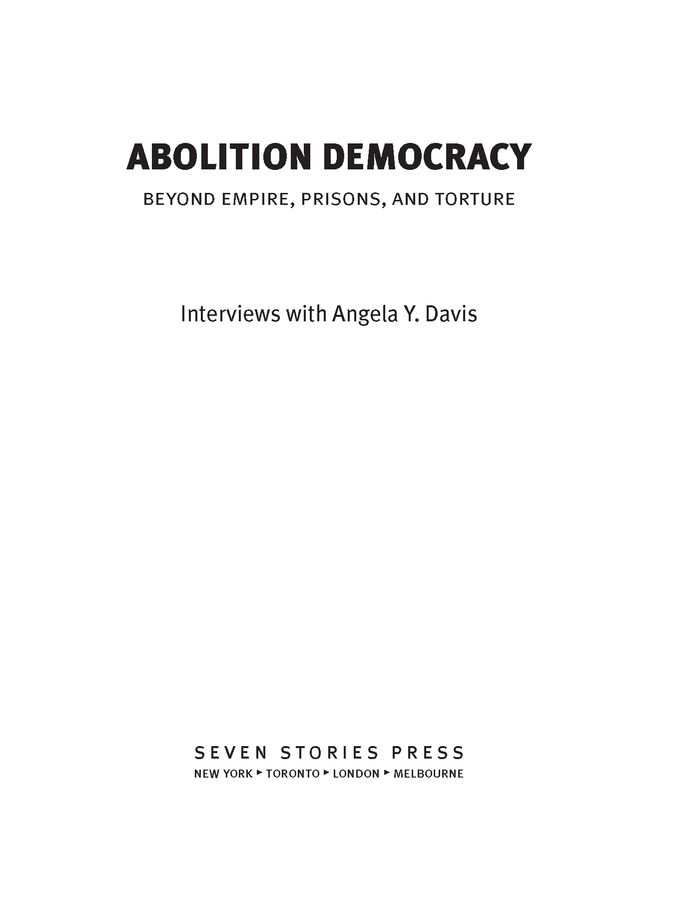Table of Contents
Introduction
BY EDUARDO MENDIETA
Angela Y. Davis is known by many as the iconic face of 1970s Black Pride. Others know her as the former vice-presidential candidate of the Communist Party of the United States, while others know her as a major feminist scholar who has written some of the most transformative and enduring texts of feminist thinking in the last quarter century. And a new generation of students, activists and cultural workers got to know her in 1997 when Professor Davis helped found Critical Resistance, a national organization dedicated to dismantling the prison-industrial-complex, a topic that is central to her current scholarship and activism. In fact, throughout each of her lifes projects Angela Y. Davis has been an unwavering prison activist whose focus has returned repeatedly to the opposition of prisons, imprisonment and racialized punishment.
Vladimir I. Lenin claimed that prisons are the universities of revolutionaries, and while Angela Davis was already a revolutionary by the time she was placed on the FBIs Ten Most Wanted List on false charges, driven underground, arrested, and incarcerated, her work has been indelibly marked by her experience of imprisonment. Some of her earliest published works were written during her sixteen-month incarceration, brilliant pieces in which she established the links between surplus repression, punishment, and the racial violence at the heart of white supremacy in the United States.
Reading Davis, one is immediately struck by her sources, starting with her own experience as a black women, political prisoner, and American citizen who was at one time labeled an enemy of the state only to then become the focus of an intense international solidarity movementthe Free Angela Davis campaignthat lead to her acquittal in 1972. Another source is her continuous engagement with the canonical figures in what one can call a tradition of black critical political philosophy that has found two towering figures in Frederick Douglass and W. E. B. DuBois. This engagement harkens back to her early seventies Lectures on Liberation, in which we find a neo-Marxist, or Frankfurt School approach to the thought of Douglass. In one of the essays that Davis wrote while she was in the Marin County Jail, Davis turns to DuBoisfor it is in him that she found the most severe and explicit critique of the prison system in the United States. It is in DuBois, furthermore, that Davis discerns the historical links between slavery, the failed reconstruction, the turn of the century lynchings, the emergence of the KKK, Jim Crow, the riots of the post-civil war period, and the rise of the racial ghettos in all major U.S. cities.
It is important to underscore Daviss engagement with Douglasss and DuBoiss work, for both stand in for two philosophical approaches in Daviss thinking, approaches that must be juxtaposed against one another. On the one hand, Douglass represents an existential concern with freedom that easily translates into a deference to political liberty in terms of voting rights. Indeed, in a 1995 essay entitled From the Prison of Slavery to the Slavery of Prison: Frederick Douglass and the Convict Lease System,
The black laws of the south turned black free men into criminals so that their labor could be exploited even more pugnaciously and rapaciously than when they had been slaves. The convict leasing system became one of the most lucrative mechanisms for simultaneous control, along with gerrymandering of black free labor and extreme exploitation. DuBois put it this way:
This penitentiary system [the prison leasing system] began to characterize the whole South. In Georgia, at the outbreak of the Civil War, there were about 200 white felons confined at Milledgeville. There were no Negro convicts, since under the discipline of slavery, Negroes were punished in the plantation. The white convicts were released to fight in the Confederate armies. The whole criminal system came to be used as a method of keeping Negroes at work and intimidating them. Consequently there began to be a demand for jails and penitentiaries beyond the natural demand due to the rise of crime.
According to historians, precious little is known of Douglasss views on the convict leasing system. Davis critiques Douglasss loud silence on this matter because it was surely a nightmare that most blacks in post-Civil War America lived and experienced first hand. Douglass, in Daviss view, may have been blinded to this reality because he was so thoroughly focused on getting the ballot for blacks that in the process he entirely neglected the economic well being of blacks. For Davis, [c]onvict leasing was a totalitarian effort to control black labor in the post-Emancipation era and it served fully as a symbolic reminder to black people that slavery had not been fully disestablished. Davis also faults Douglass for his overconfidence in the law as an allegedly dispassionate and impartial tool that could not be used to roll back the gains of the post-emancipation period. As an enlightenment thinker, Douglass saw law as a mechanism to bring about justice and democracy for black Americans but failed to see how it could be usedand was usedto brand black human beings as criminals.
In contrast, Davis turns to DuBois as the exemplar political thinker, even as Davis also acknowledges the pioneering work of D. E. Tobias and Mary Church Terrell, two other black scholars who studied and documented the devastating effects of the prison leasing system. In DuBois, Davis finds a critique of Douglasss nave trust in both the economic and political independence of post-slavery blacks as well as a critique of the ways in which the state was a direct party to preservation and mutation of slavery. DuBois saw clearly how the state participates in the criminalization of blacks so that their labor could be extracted through the mechanism of the prison leasing system. As DuBois put it in his monumental
Black Reconstruction,
In no part of the modern world has there been so open and conscious a traffic in crime for deliberate social degradation and private profit as in the South since slavery. The Negro is not anti-social. He is no natural criminal. Crime of the vicious type, outside endeavor to achieve freedom or in revenge for cruelty, was rare in the slave south. Since 1876 Negroes have been arrested on the slightest provocation and given long sentences or fines that they were compelled to work for as if they were slaves or indentured servants again. The resulting peonage of criminals extended into every Southern state and led to the most revolting situations.
For DuBois, black labor was neither economically free nor politically self-determining. Thus, blacks entered a racialized public sphere of American democracy as disadvantaged and unequal. Democracy for blacks had been withheld at the very moment it had been promised: upon the abolition of slavery. With the abolition of slavery blacks ceased to be slaves, but immediately became criminalsand as criminals, they became slaves of the state. Thus, DuBois represents for Davis an anticapitalist, antistatist, antilaw perspective that is profoundly attentive to what we can call the social imaginary, or civic imagination.
Davis, however, is neither an exegete nor historian. She is an original radical thinker, whose contributions to an emerging theory of penality are used in the classroom as much as they are by activists and community organizers. In the context of this short introduction we only have space to give the general shape and main lines of argument in Daviss thinking, which I think can be discussed in terms the following themes:


